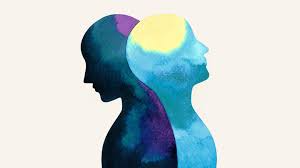Have you or someone you love been diagnosed with Bipolar Disorder? Our Registered Psychologist (Provisional) Murray Heintz offers some effective strategies to help treat symptoms of Bipolar Disorder.
Self-Care Strategies For Bipolar Disorder
Managing Bipolar Disorder symptoms can feel like a full-time job at times. So besides medication and therapy, what else can you use to work towards achieving and maintaining mood stability? Dr. Stephanie O’Leary (2020) has identified several straightforward strategies to help treat symptoms of Bipolar Disorder.
1. Set and stick to a routine The bipolar brain thrives with routine: strive for consistency in waking time, eating habits, work schedule, and sleep hygiene. When your brain knows what it is doing next, it’s not as stressed out, which leaves more room to figure out problems and handle other frustrations.
2. Get consistent sleep Sleep is the most effective thing you can do to prevent mania and keep your bipolar in check. However, people with depression and bipolar often feel best at night, so staying up and composing masterpieces or writing bestselling novels can be tempting. The trick is going to bed when the rush of creativity comes, to practice good sleep hygiene when you don’t want to.
3. Carve out time to play Play is a fun and meaningful way to manage bipolar disorder. Play is critical for brain development and emotional regulation, and equally important, it is fun to do.
4. Exercise Exercise is touted as a strategy for a variety of afflictions, both mental and physical. Why? Because it works. Research indicates that exercise may be an effective strategy to deal with the depressive phase of bipolar disorder.
5. Nutrition There’s a strong link between mood and food. Too much sugar or caffeine, for example, can put a sensitive person at risk for hypomania. On the other hand, a diet consisting mainly of fruit, vegetables, fish, and whole grains was significantly associated with a reduced risk of depression. Other good brain foods include nuts, yogurt, seeds, and, ah yes, dark chocolate.
6. Laughter Laughter being the best medicine, may not be too far from the truth. Laughter can reverse the stress response, alter dopamine and serotonin levels, and facilitate healing.
7. Keep a record Keep a mood journal. A mood journal can tell you where you’ve been and where you’re heading based on data like hours of sleep, stressors, trigger foods, and the effect on your mood they have had. Keeping a mood journal throughout the years also allows you to see basic patterns of health and illness so that you can head in the right direction.
Finally, remember, you are not your diagnosis.
Thanks, Murray! That is really thoughtful and helpful information.
Murray works with adults. He’d love to work with you.
Book your appointment with MURRAY here.
Cheers to better days,
Penney


